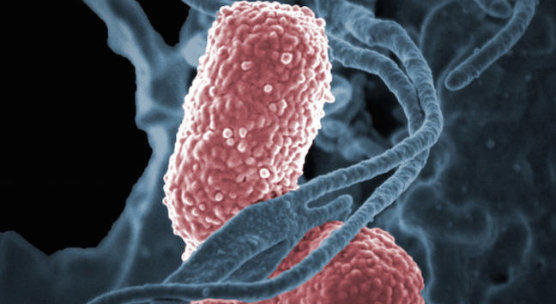A vision for medicine precision with new disease data link-up
Published On Tue 22 Mar 2016 by Roddy Isles

Vast amounts of data generated by screening patients for diseases like cancer and arthritis at The University of Manchester will now be used to improve treatment and drug safety in partnership with the University of Dundee.
The two universities have joined forces to transform medical treatment through protein analysis technology which identifies biomarkers of disease. This allows doctors to target treatments specific to the patient’s condition, and deliver the right treatment at the right time in the right dose.
This ‘precision medicine’ approach improves safety and effectiveness as patients are treated on an individual basis.
The new partnership will use data from work on cancer and inflammatory disease biomarkers led by Professor Tony Whetton which is pioneering the application of ‘proteomics’, the large-scale analysis of proteins using state-of-the-art mass spectrometry instruments.
This enables the screening of patients for new protein diagnostic and disease markers and the segmentation of patient groups which can benefit from specific therapies and drug treatments.
This approach can also help reduce the risk of patients receiving treatments that cause harmful side-effects. In one example of the potential of this work, Professor Whetton and colleagues recently discovered a new biomarker for risk of ovarian cancer.
Professor Whetton said, “We are industrialising the approach to finding new biomarkers of diagnosis, prognosis and responses to therapy in medicine.”
This process will generate huge quantities of data and researchers from the University of Dundee will provide specialised software solutions for managing the big data involved in applying precision medicine. The Dundee team, led by Professor Angus Lamond, has pioneered proteomics research and software developments for the analysis of disease mechanisms.
Professor Whetton added, “Working with Professor Lamond and his world-leading team will give us a new ability to manage and analyse the huge amounts of data we will be generating. This offers exciting new opportunities for improving UK healthcare and to progress this field of research at pace and scale.”
The new collaboration combines the expertise of Manchester and Dundee to advance research on psoriasis, arthritis, cancer, lupus and other diseases and Professor Lamond, Director of the Laboratory of Quantitative Proteomics at the University of Dundee, believes that the better use of data can deliver significant benefits in these and other illnesses.
He said, “Efficient new computational tools are critical for handling the big data now emerging from biomedical and clinical laboratories.
“We are very enthusiastic at the prospect of working with Professor Whetton and his colleagues to help deliver the healthcare benefits from using proteomics and other innovative technologies.”
Professor Ian Greer, Vice-President and Dean of the Faculty of Medical and Human Sciences at The University of Manchester said: “Through ground-breaking collaboration that brings some of the UKs best scientists and resources on proteomics into focus on key disease areas, our universities are changing not only how we deliver scientific advances but also faster and greater impact on disease.”
Life Sciences at the University of Dundee
The University of Dundee is the top ranked University in the UK for biological sciences, according to the 2014 Research Excellence Framework.
Dundee is internationally recognised for the quality of its teaching and research and has a core mission to transform lives across society. More than 17,000 students are enrolled at Dundee, helping make the city Scotland’s most student-friendly.
The University is the central hub for a multi-million pound biotechnology sector in the east of Scotland, which now accounts for 16% of the local economy.
For media enquiries contact:
Roddy Isles
Head of Corporate Communications
University of Dundee
Nethergate, Dundee, DD1 4HN
Tel: +44 (0)1382 384910
Mobile: 07800 581902
Email: r.isles@dundee.ac.uk